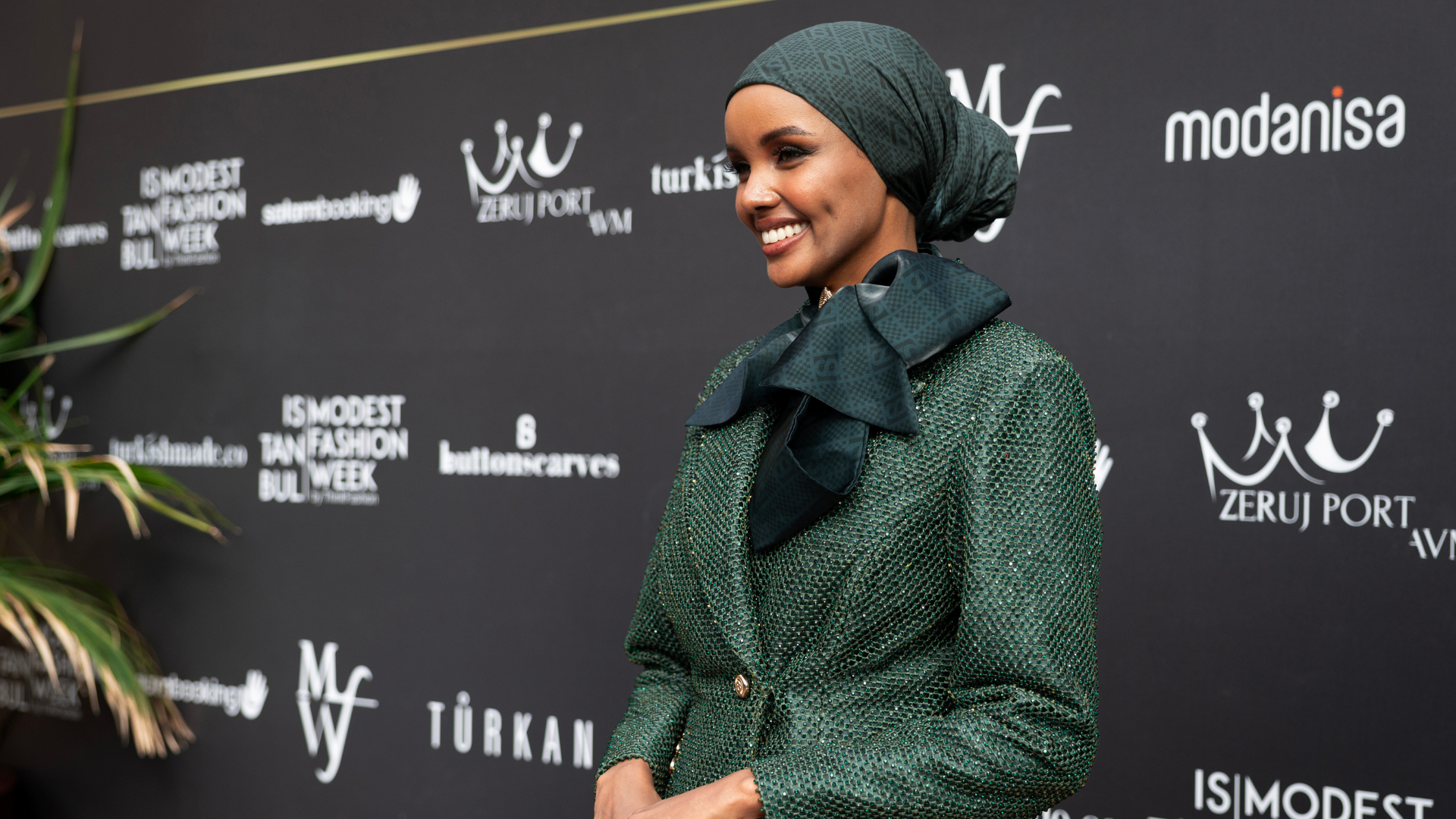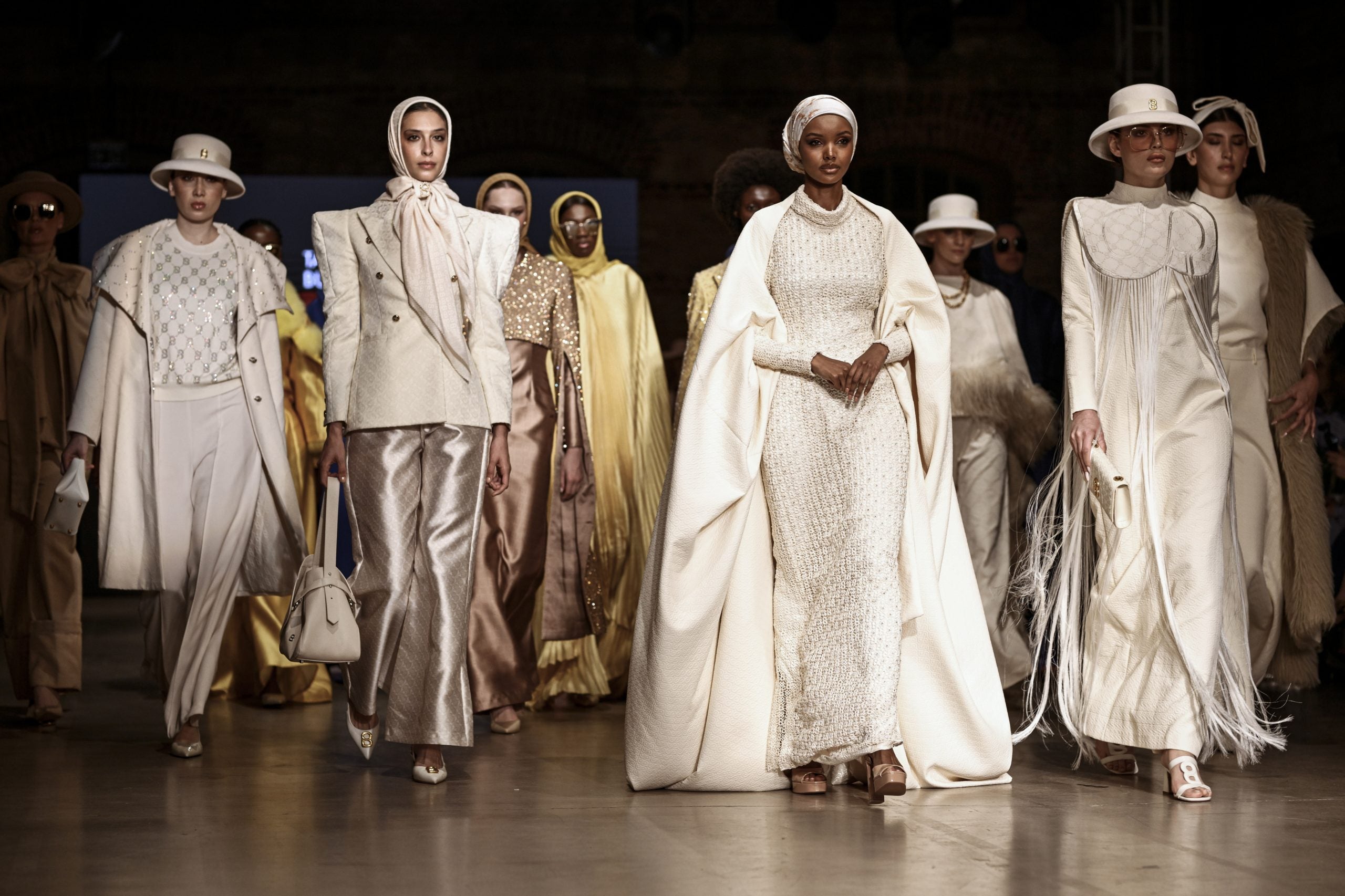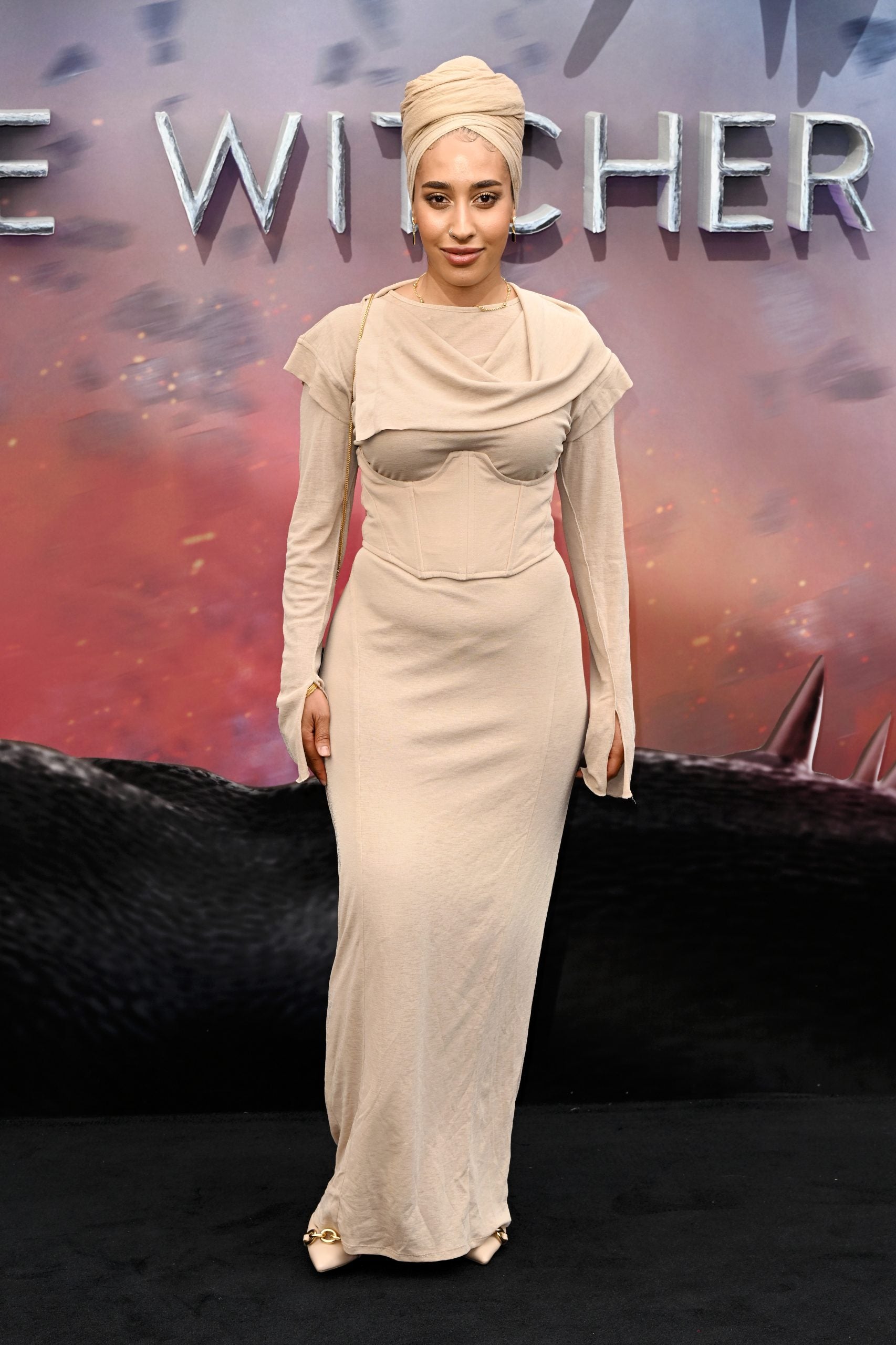
In a world where the fashion industry often grapples with representation, there exists a growing movement that advocates for a more understated yet powerful approach to dressing: modest fashion. While style continues to be an avenue for people to express themselves and their culture, this way of dressing emboldens them to do so tastefully.
Often misunderstood as solely a religious or cultural practice, modest fashion has emerged as a way of life for many individuals who seek to express their values and beliefs through their sartorial choices, even in the hottest months when the temptation to shed layers is strong.
One striking aspect of this movement is the rise of hijabi models who are redefining beauty standards and challenging industry norms. These trailblazing individuals have not only graced campaigns for major brands like Nike, Adidas, and Fenty but have also been pivotal in the establishment of modest fashion weeks worldwide.
Models such as Halima Aden and Mariah Idrissi have been the faces of several campaigns, showcasing the importance of representation in the fashion industry and how the embrace of different voices, cultures, and identities, when celebrated and included, help people feel seen, respected, and valued. These platforms serve as more than just showcases for clothing; they are spaces of empowerment, representation, and celebration of diverse voices, cultures, and identities in the fashion realm.

To truly amplify the impact of modest fashion, it is imperative that the industry takes steps to be more inclusive and representative. This means featuring a more diverse array of models, influencers, and content creators in campaigns and collaborations. Brands need to ensure that their collections cater to a broad spectrum of body types and cultural expressions so that everyone feels seen.
Speaking truth to power Aden who is also a humanitarian has been vocal about the pitfalls that come with rising swiftly amongst the ranks in the modeling industry. In fact, she once quit modeling abruptly in 2020, though she has returned she expressed some of the difficulties that came with constantly shooting and being someone who was representing a marginalized community.
On calling out the industry Aden shared the following in a British Vogue cover story: “My message resonated with people because I was honest, but I was also young. If I could go back, I wouldn’t have delivered it on Instagram. I really wouldn’t have,” she said. “I do feel bad, and I feel like I could have been gentler. But fashion is a cruel business to be a part of and sometimes you just have to say it like it is.”
Modest fashion much more than a way of life because it’s not just about clothing; it’s about expressing one’s values and beliefs through style. It promotes confidence, dignity, and a sense of identity. For many individuals, including those outside specific religious or cultural communities, embracing modest fashion is about more than just covering up; it’s about embodying confidence, dignity, and a sense of self.
As someone who grew up inspired by their mother’s style, modest dressing became a natural extension of my style. While the term may have Islamic associations, I believe that anyone, regardless of background, can find resonance in its principles and make it a part of their fashion journey. In a recent conversation with prominent modest fashion influencer Summer Albarcha, the significance of modest fashion as a means of autonomy over one’s body was a poignant part of our discussion. By infusing her designs with cultural influences and creating coordinated ensembles that cater to specific backgrounds, she exemplifies the spirit of inclusivity and thoughtful design that characterizes the modest fashion movement.

Modest influencers including Hafsah Mohammed and Khadija Mahmoud are additional individuals who have built a following due to their affinity with fashion but also the stunning outfits they share with their audiences. Mohammed who was born in Nigeria shared in an interview with Industrie Africa that she initially launched her now-defunct blog in 2016. She started documenting her outfits as a creative outlet while she felt she was experimenting with modest fashion. “Modest fashion is an identity. Fashion is a way I express myself, so it is essential to make it relatable to my views about modesty,” Mohammed shared. I am proud of how I infuse modesty into my style.”
Kenyan native Mahmoud says she began paying closer attention to her clothing choices in 2013. Before she became an architect and interior designer by trade she began her journey as a fashion influencer while in college. “I turned to photography as an escape, and that’s when I started experimenting with new ways to style my hijab, taking pictures, and creating a blog,” she tells Industrie Africa. She describes her way of dressing as minimalist and neutral.
Mahmoud says that the roots of modest dressing are in the “Islamic sense of modesty which is covering your entire body except for your face and palm of your hands.” She also shares that what you wear shouldn’t show the shape of your body–even with this signifier this doesn’t mean to lean into baggy clothing. Instead, Mahmoud shares that one should get creative while still covering oneself, that’s what she does.
When it comes to infusing personal style into a modest wardrobe, content creator Fatema Alawadhi emphasizes the importance of choosing pieces that reflect individual tastes while upholding modesty. From vibrant colors to elegant cuts, her approach showcases how creativity knows no bounds within the realm of modest fashion.
As global brands increasingly turn their attention to modest fashion, it signifies a shift towards greater inclusivity and awareness of diverse consumer preferences. Recognizing and addressing misconceptions surrounding modest fashion is crucial in dispelling the notion that it is limiting or uninspired. In reality, modest fashion offers a rich tapestry of creativity, diversity, and endless possibilities.
In a world where self-expression through clothing is a powerful form of self-expression, modest fashion emerges as a narrative of elegance, inclusivity, and individuality. By embracing this way of life, we not only redefine fashion norms but we also pave the way for a more accepting and diverse industry where everyone’s voice is heard and celebrated.